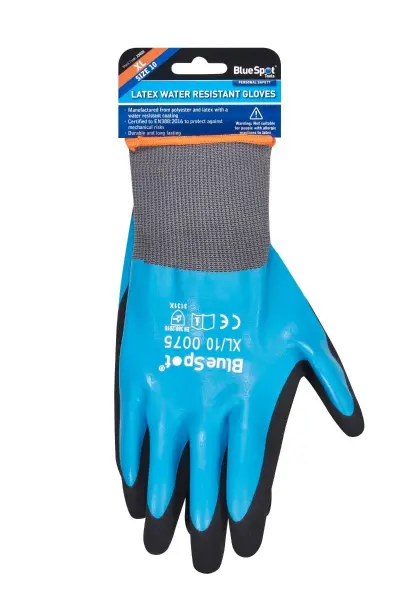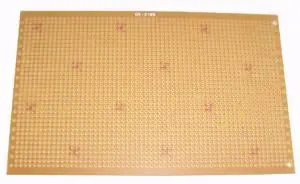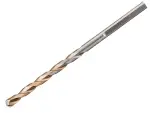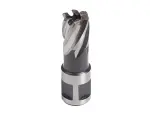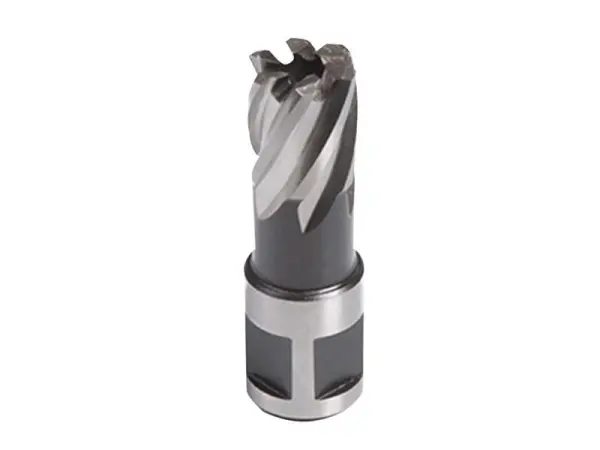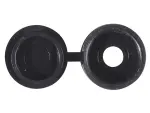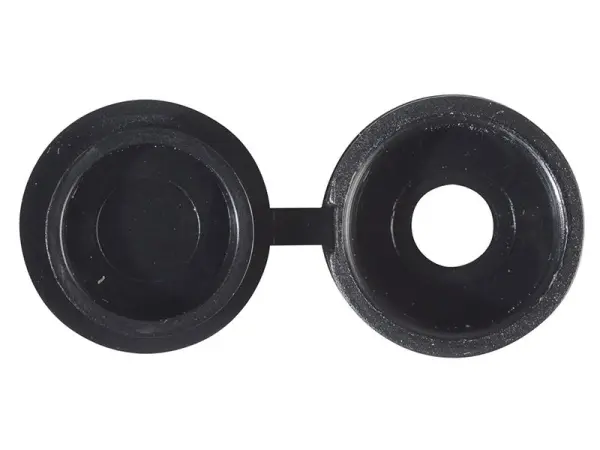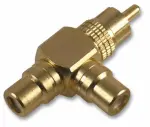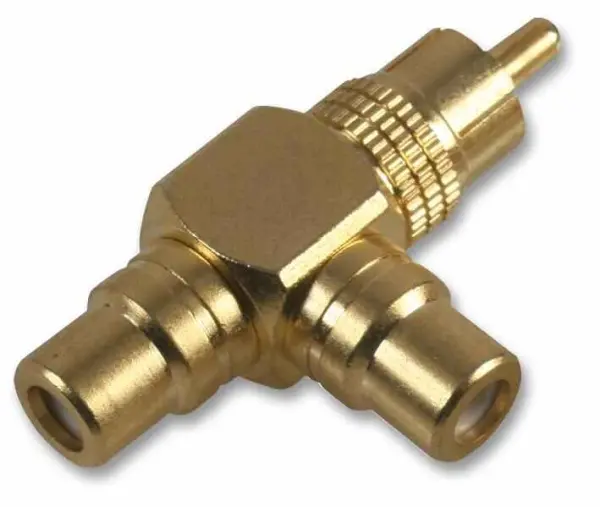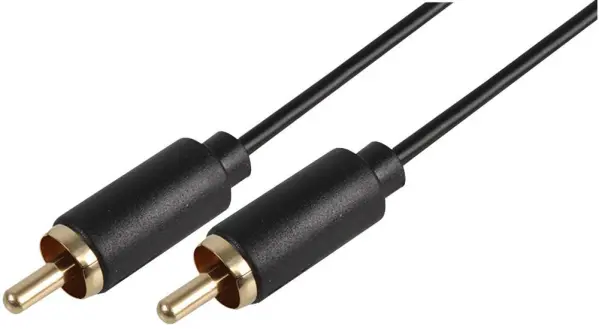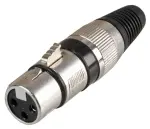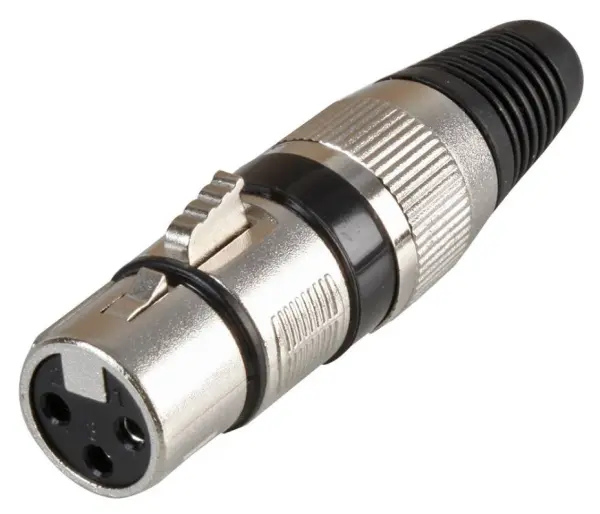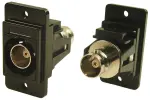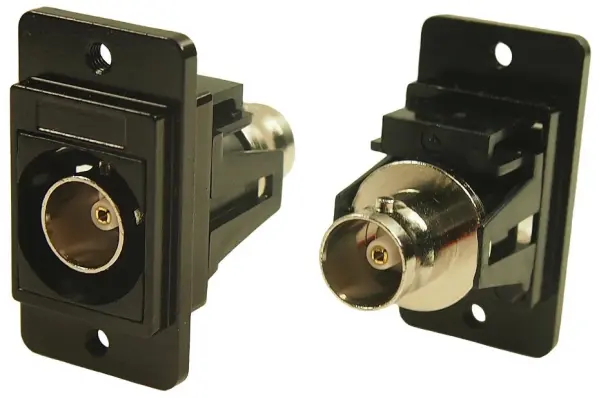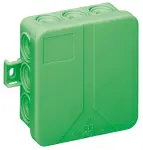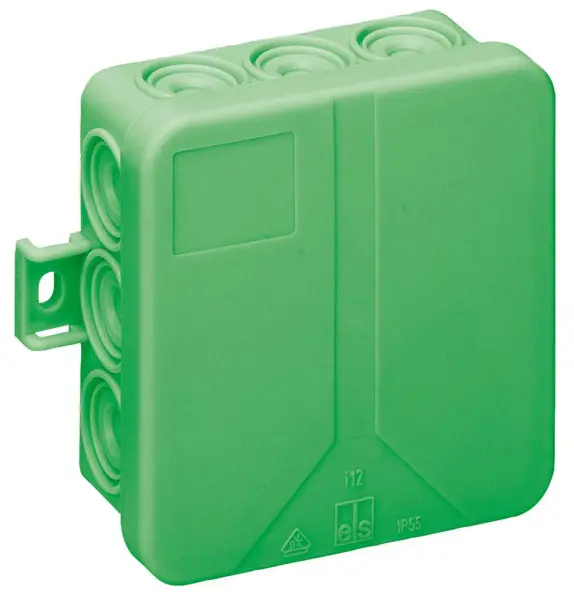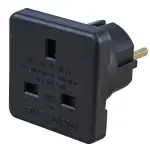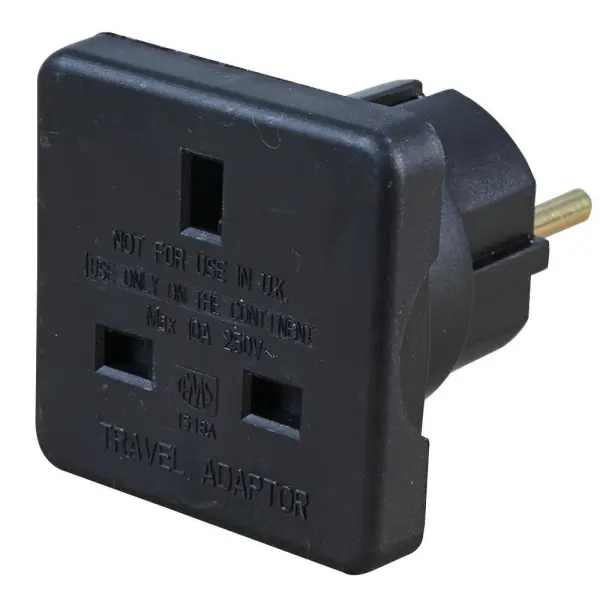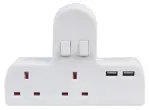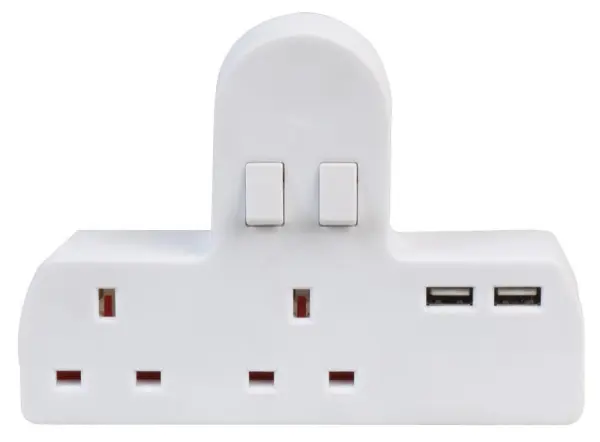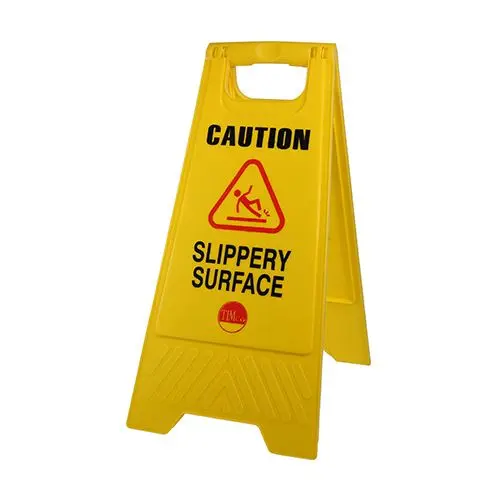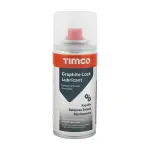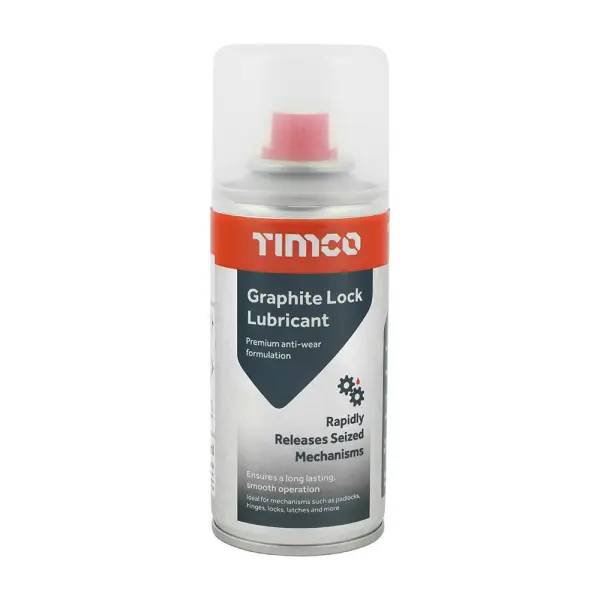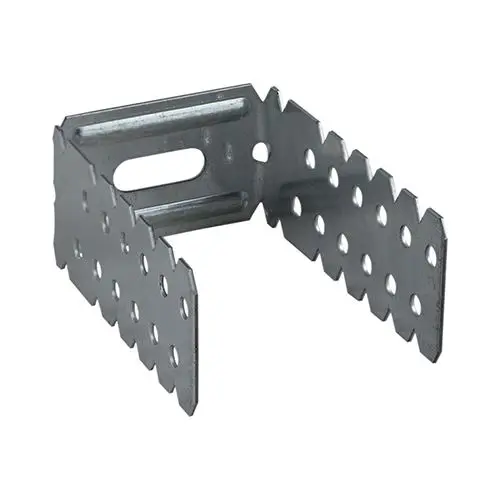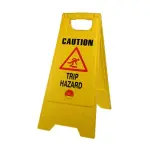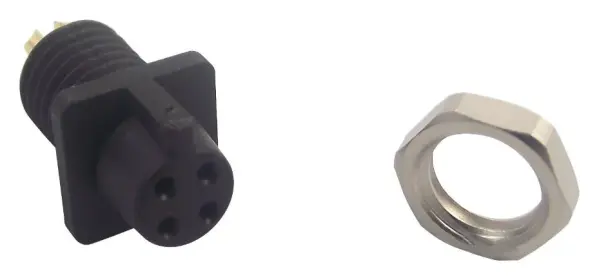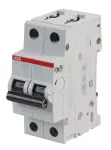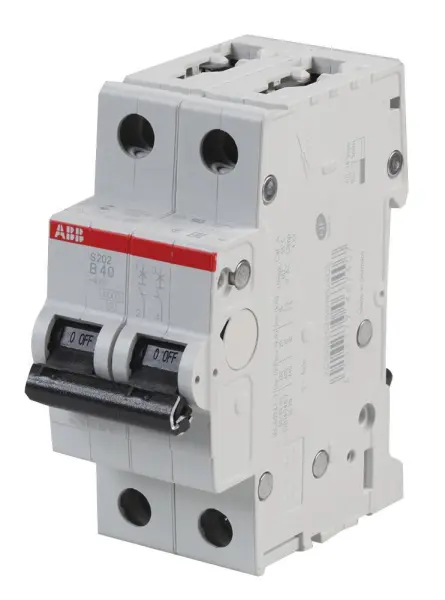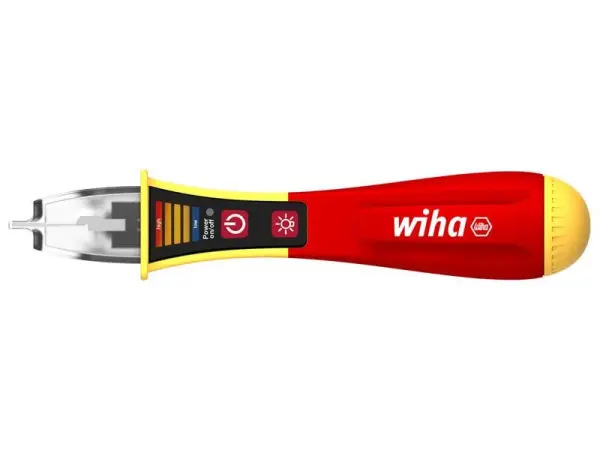
Wiha Non-contact Voltage Detector, 12-1000V AC
Wiha’s non-contact voltage tester detects 12-1000V AC with LED/audio alerts, CAT IV safety, & built-in flashlight.
The Wiha Non-contact Voltage Detector is a professional-grade tool designed for safely detecting live electrical cabling, breaks, cable interruptions, blown fuses, and defective light bulbs. Its contactless operation, with optical and audible signals, provides an immediate indication of whether an area is live. A permanently green LED shows the device is ready for use, while coloured LEDs (blue, orange, or red) signal the alternating electric field's intensity.
Energy-saving features include an auto-off function after four minutes of inactivity, ensuring long battery life. An integrated flashlight enables measurements in dark environments and can also be used as a standalone torch. The compact design, with a push-on clip, allows for easy storage in shirt or trouser pockets, making it ideal for professionals on the go.
Globally compatible with all socket variants, this voltage tester meets CAT IV 1,000 VAC standards and complies with EN 61010-1/IEC 61326. Always test it on a known voltage source before and after use to confirm proper operation.
Key Features:
- Non-contact voltage detection (12-1000V AC) with optical/audible alerts
- Multi-colour LED indication of electric field strength
- Auto power-off to conserve battery life
- Built-in flashlight for low-light conditions
- Compact, pocket-friendly design with a clip
- Complies with CAT IV 1,000 VAC safety standards
- Detecting live electrical wiring
- Locating cable breaks or interruptions
- Checking blown fuses
- Testing defective bulbs in light chains
- Voltage Range: 12-1000V AC
- Protection Class: IP67 (dust/water-resistant)
- Operating Temperature: -20°C to 40°C
- Power: 2 x AAA Batteries (included)
- Compliance: EN 61010-1/IEC 61326, CAT IV 1000V
Always follow local regulations and product guidance.
Free standard delivery on UK mainland orders. Express delivery options and international shipping available at checkout.
We offer a 30-day money-back guarantee on most products. For faulty items, contact us within 14 days for a replacement or refund.
View Full Delivery & Returns PolicySecure Transactions
We take the utmost care with your payment and personal details. Our website employs advanced encryption technology, including Secure Sockets Layer (SSL), to protect your information during transmission. You can verify a secure connection by looking for 'https' and a locked padlock in your browser.
Cookie Policy
Cookies enhance your shopping experience by keeping track of your basket and remembering you when you return. We also use banner advertising based on your browsing history to present products of potential interest.
Security Warning
Beware of phishing scams! We will never ask for personal details via email. If such information is required, we'll request you to contact us by phone. If you receive an email requesting sensitive information, do not respond and let us know immediately.






